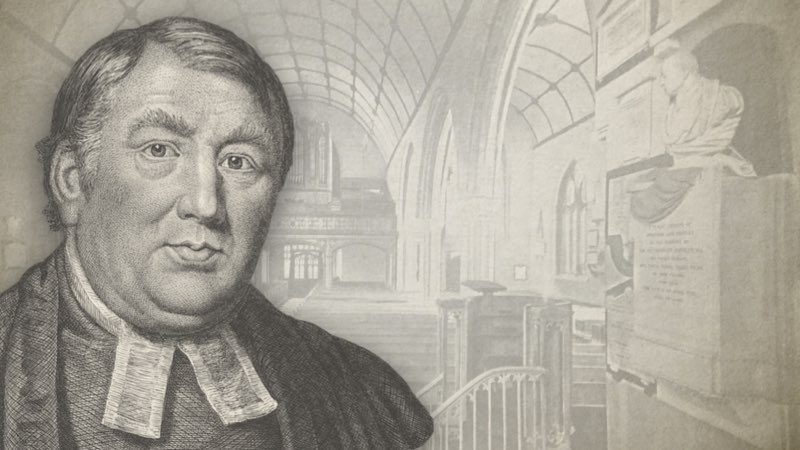
July 5—Morning Devotion
“Thou shalt not wear a garment of divers sorts, as of woollen and linen together.”—Deuteronomy 22:11
Though the true believer, who like the king’s daughter is all glorious within, cannot but know, that as meat commendeth us not to God, so neither doth the necessary dress, which, since the fall, is become suited to cover our sinful bodies, make a part of our holy faith; yet it is highly proper, that persons professing godliness should use great plainness of apparel. The ornament of a meek and quiet spirit, we are told, is of great price in the sight of God. But who should have thought that such a precept as this of Moses had a gospel signification! And yet as Christ was preached under types and figure through the whole law, we may reasonably suppose that not a single command was then given but what had an eye to him and his great salvation. But if we find the Lord so strict respecting the outward dress of the body, what may we conclude the Lord would enjoin respecting the inward clothing of the soul? If wollen and linen were offensive to be worn together, surely, we cannot appear before God in the motley dress of Jesus’s righteousness and our own. The fine linen, scripture saith, is the righteousness of saints. With this, which Jesus puts on his people, nothing of our own wollen garments must be worn. The righteousness of a creature, had we any, which in fact we have none, cannot be suited to mix with the righteousness of the Creator. And no man that is wise for salvation, would put the old piece of our corrupt and worn out nature upon the new garment of the renewed nature in Christ Jesus. When therefore the Lord saith, “thou shalt not wear a garment of divers sorts;” my heart replies, no, Lord! let me be clothed with the robe of thy righteousness, and the garment of thy salvation; then shall I be found suited for the marriage supper, when the King comes in to see his guests at his table.
Robert Hawker (1753-1827) was an Anglican (High-Calvinist) preacher who served as Vicar of Charles Church, Plymouth. John Hazelton wrote of him:
“The prominent features…in Robert Hawker's testimony…was the Person of Christ….Dr. Hawker delighted to speak of his Lord as "My most glorious Christ.” What anxious heart but finds at times in the perusal of the doctor's writings a measure of relief, a softening, and a mellowing? an almost imperceptible yet secret and constraining power in leading out of self and off from the misery and bondage of the flesh into a contemplation of the Person and preciousness of Christ as "the chiefest among ten thousand and the altogether lovely." Christ and Him crucified was emphatically the burden of his song and the keynote of his ministry. He preached his last sermon in Charles Church on March 18th, 1827, and on April 6th he died, after being six years curate and forty-three years vicar of the parish. On the last day of his life he repeated a part of Ephesians 1, from the 6th to the 12th verses, and as he proceeded he enlarged on the verses, but dwelt more fully on these words: "To the praise of His glory Who first trusted in Christ." He paused and asked, "Who first trusted in Christ?" And then made this answer: "It was God the Father Who first trusted in Christ."
Robert Hawker on the Biblical Covenants (Complete)
Robert Hawker's Poor Man's Morning Portions




